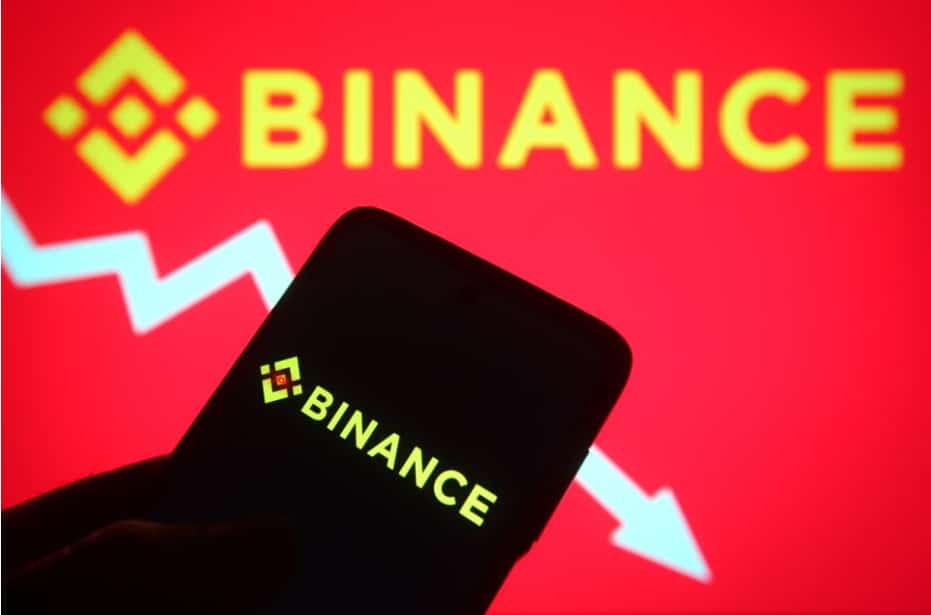Binance’s troubles continue. Its partner Signature Bank will no longer process any transactions below $100,000 from February 1.
Signature Bank Drops Binance
The Binance exchange has just announced that its partner Signature Bank will now only process amounts above $100,000.
Here is an excerpt from Binance’s statement to its customers:
“Our banking partner [signature bank] has advised that it is no longer able to process SWIFT dollar transactions under $100,000 from February 1. This is the case for all the exchanges that are part of their clientele. »
Binance specifies actively seeking a new bank allowing to make SWIFT transfers in order to avoid any interruption of its services. Its services in currencies other than the dollar still work:
“You can still buy and sell cryptocurrencies using your credit card or via bank transfer in any other fiat currency other than dollars. »
The crypto.com exchange seems to anticipate the same kind of sabotage in view of its statement sent to its customers today:
“We inform you that we are in the process of migrating your euro wallet to a new provider, and we estimate that this transition will be completed within 72 hours. For this reason, deposits and withdrawals to your euro wallet will be temporarily disabled during this period. »
Signature Bank’s timing is suspicious. Is it to prevent small investors from taking advantage of the looming bull run?
SWIFT is Not Involved
Some initially believed in a ban coming directly from the SWIFT network. This is not the case. That said, who knows if it won’t be the case one day?
SWIFT (Society for Worldwide Interbank Financial Telecommunication) is an international payment network. This Belgian company is a cooperative owned by its members and whose distribution of voting rights depends on the number of transactions.
It is used by “more than 11,000 banks in more than 200 countries and territories” and processes 22 million international transactions every day. It is a payment system linking banks for their international transactions.
Unfortunately, the SWIFT network has been transformed in recent years into a mechanism of domination subject to the Washington-Brussels axis.
Iran, for example, has been disconnected since 2012. SWIFT then declared:
“Following a decision by the Council of the EU, SWIFT today announces that it has been asked to cease its communication services to Iranian financial institutions. »
Russia has also been disconnected since the start of the Ukrainian conflict. Here is the press release from SWIFT:
“Diplomatic decisions taken by the European Union, in consultation with the United Kingdom, Canada and the United States, lead SWIFT to participate in the efforts aimed at ending this crisis by disconnecting certain Russian banks from our services. financial messaging. »
Will SWIFT Eventually Drop The Exchanges?
The SWIFT network is a weapon of mass destruction that can easily bring about regime change at the push of a button.
Moscow had been preparing for this for several years by setting up its own international payment system. China has done the same by launching the CIPS (Cross-Border Interbank Payment System).
This dangerous SWIFT monopoly is not to reassure many nations and is probably no stranger to the growing interest of central banks in the CBDC. As a reminder, two types of CBDC are under study:
The dystopian CBDC called “retail”. This CBDC aims to make cash disappear. It could even end up becoming programmable with all its procession of freedom-killing conditions.
The so-called “wholesale” CBDC which could replace SWIFT.
Not to mention the Bitcoin network and the Lightning Network which together form a direct competitor to the SWIFT network.
No one should be surprised if the SWIFT network one day cuts ties with all exchanges. But at a time when several hundred million people have already embraced Bitcoin, this still seems unlikely.
Either way, Signature Bank’s timing is suspicious. One cannot help but think that this is to prevent small investors from buying Bitcoin on the eve of the bull run.
This article is originally published on cointribune.com


